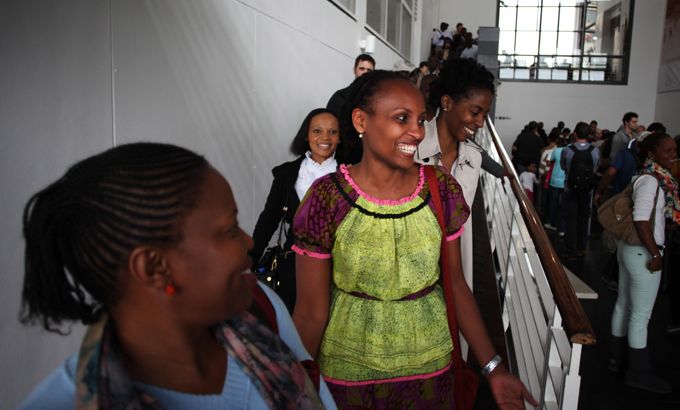
Episode 4: ‘The baton has been passed’
As their fellowship comes to an end, we ask if the young Africans have been transformed into great leaders.
It has been five months since 25 young Africans first pledged an oath to Archbishop Desmond Tutu to serve the needs of their countries. And in this final episode of the series, Tutu’s Children are about to embark on their final three days of leadership coaching in London.
In Cape Town and Oxford, they were pushed to examine how they lead, to suggest new solutions to Africa’s problems, and to face some of their own demons. And London promises to be no less demanding – with a pressured group task, appointments with businesses in the city, and a tour of the House of Lords.
Keep reading
list of 4 itemsEurope pledges to boost aid to Sudan on unwelcome war anniversary
Birth, death, escape: Three women’s struggle through Sudan’s war
Does Israel twist humanitarian law to justify Gaza carnage?
I want to see Africa change in my lifetime, and I think there is time for debate but there is definitely more time that should be allocated to getting things done.
For Peter Wilson, one of the founders of the African Leadership Institute (AfLI), the time the fellows spend in the UK is about teaching them “to be part of the global world”, where as leaders they will ultimately have to “compete for funds and ideas and technologies”.
Businesswoman and development expert Amy Jadesimi grew up feeling more British than Nigerian – but as a medical student at Oxford University in 1994, when Archbishop Tutu addressed the university’s debating union, she began to rediscover her roots.
“It happened after Nelson Mandela was released and there was a lot of violence in South Africa and his [Desmond Tutu’s] response I think was very intelligent, very articulate, very forceful as well and very clear. It wasn’t just an emotional response,” recalls Amy of the address.
“So the message to me was all the things that you have been told about your country, about your continent, about yourself, about what it is to be black are basically wrong.”
I feel like I am an African soldier who must go back on the ground and, collectively with my peers, assist our continent.
But what kind of ambassadors for Africa will our young leaders make?
“The power relations throughout the world are changing. The world needs us, and the world does not need us to whinge and moan about the past, we need to decide what is going to be our contribution to the world,” explains company director Ndumiso Luthuli.
Their journey together has so far brought some of the young Africans to some surprising conclusions about leadership. But in London, their leadership will be tested in the kitchen, where they are required to cook an array of authentic African dishes.
South African chef Rosalind Rathouse is on hand to help them. But she puts provocation and sabotage on the menu to examine how they manage people and resources under pressure. The task exposes their willingness to share resources and collaborate for the greater good.
But, with their countries’ real resources so often plundered and mismanaged, will this exercise help them to become better stewards?
The baton has been passed on to our generation and it's time for us to start running.
After more than five months, 41 training sessions, and several emotional crises, the journey to official graduation as Archbishop Tutu fellows is almost over.
And though there are no guarantees that they will lead by their principles or deliver on their promises along the way, many have gained new insights as leaders and as individuals.
So if we come across them over the coming months and years, what should we expect to see?